
Cognitive Computation
Scope & Guideline
Pioneering Research at the Nexus of Cognition and Technology
Introduction
Aims and Scopes
- Cognitive Computing and AI Integration:
The journal emphasizes research that integrates cognitive computing with artificial intelligence techniques to enhance machine understanding and decision-making capabilities. - Machine Learning Applications:
A significant portion of the journal's content is dedicated to machine learning methodologies, exploring their applications in diverse fields such as healthcare, finance, and environmental monitoring. - Data Analytics and Big Data:
The journal covers advancements in data analytics, focusing on big data methodologies and their implications for decision-making and predictive analytics. - Healthcare and Medical Technology:
A core area of interest includes innovative applications of AI and machine learning in healthcare, particularly in diagnostics, treatment prediction, and personalized medicine. - Security and Privacy in Computing:
The journal addresses issues related to cybersecurity, data privacy, and the ethical implications of AI technologies. - Interdisciplinary Approaches:
Cognitive Computation encourages interdisciplinary research that combines insights from cognitive science, psychology, and computational methodologies to solve complex problems.
Trending and Emerging
- Explainable AI (XAI):
Research on explainable AI is gaining traction as the demand for transparency and interpretability in AI models increases, particularly in sensitive fields like healthcare and finance. - Federated Learning:
Federated learning has emerged as a critical area of focus, enabling decentralized model training that enhances data privacy and security while allowing collaborative learning across institutions. - AI in Healthcare Innovations:
There is a growing emphasis on AI applications in healthcare, particularly in predictive analytics, disease detection, and personalized treatment plans, driven by the need for improved patient outcomes. - Integration of IoT and AI:
The convergence of Internet of Things (IoT) technologies with AI is a trending theme, exploring how smart devices can leverage AI for enhanced data analysis and decision-making. - Ethics and Fairness in AI:
As AI systems become more pervasive, there is an increasing focus on the ethical implications and fairness of AI algorithms, driving research into bias detection and mitigation strategies. - AI-Driven Decision Support Systems:
Emerging themes include the development of AI-driven decision support systems that enhance operational efficiencies across various sectors, including manufacturing and logistics.
Declining or Waning
- Traditional Rule-Based Systems:
Research on traditional rule-based systems has seen a decline as the field shifts towards more adaptive and learning-based approaches, particularly in AI. - Basic Statistical Methods:
The prevalence of basic statistical methods is waning as more sophisticated machine learning and deep learning techniques take precedence in data analysis. - Standalone Data Mining Techniques:
Standalone data mining approaches are becoming less common, as integrated methodologies that combine machine learning with cognitive computing are favored. - Limited Focus on Classical AI:
There is a noticeable decline in research focused on classical AI techniques, such as symbolic reasoning, as cognitive computation embraces more modern AI paradigms. - General Surveys without Novel Contributions:
The journal has moved away from publishing general surveys that do not offer novel insights, favoring original research that contributes to the advancement of cognitive computation.
Similar Journals
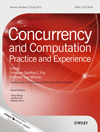
CONCURRENCY AND COMPUTATION-PRACTICE & EXPERIENCE
Fostering Collaboration in Computational ExcellenceCONCURRENCY AND COMPUTATION-PRACTICE & EXPERIENCE, published by Wiley in the United Kingdom, serves as a pivotal platform for advancing research and innovation in the fields of computational theory, computer networks, and practical applications of computer science. With an impressive impact factor and recognition in the Q2 category for disciplines such as Computational Theory and Mathematics, this journal attracts a diverse range of scholarly articles that address the current challenges and developments in these areas. It boasts a comprehensive viewership with options for Open Access, enabling wide dissemination of knowledge. Indexed by Scopus with notable rankings in multiple categories, including a remarkable position in Computational Theory and Mathematics (Rank #41/176), the journal not only elevates academic discourse but also fosters collaboration among researchers, professionals, and students alike. As it progresses toward its 2024 milestone, CONCURRENCY AND COMPUTATION-PRACTICE & EXPERIENCE remains dedicated to publishing high-quality research that prepares its readership for the evolving technological landscape.
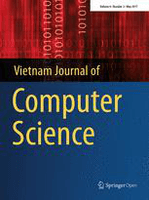
Vietnam Journal of Computer Science
Fostering collaboration for groundbreaking discoveries in AI and beyond.Vietnam Journal of Computer Science, published by World Scientific Publishing Co Pte Ltd, serves as a prominent platform for researchers and professionals in the rapidly evolving field of computer science. Launched as an Open Access journal in 2013, it aims to disseminate high-quality research across various subfields, including Artificial Intelligence, Computational Theory and Mathematics, Computer Vision, and Information Systems. With its ISSN 2196-8888 and E-ISSN 2196-8896, the journal provides valuable insights and contributes to the growing body of knowledge in computer science, particularly in Southeast Asia. Despite its relatively recent establishment, the journal has achieved significant rankings, including Q3 status in multiple categories and notable visibility in Scopus metrics, evidencing its commitment to fostering innovative research. This journal is essential for those looking to stay at the forefront of computational advancements and applications, particularly in Vietnam and beyond, facilitating an engaging dialogue among scholars and industry professionals.

JOURNAL OF COMPUTER SCIENCE AND TECHNOLOGY
Driving Excellence in Computer Science ResearchJOURNAL OF COMPUTER SCIENCE AND TECHNOLOGY, published by Springer Singapore Pte Ltd, is a pivotal platform in the rapidly evolving realms of computer science and technology. With an ISSN of 1000-9000 and an E-ISSN of 1860-4749, this journal encompasses a diverse array of topics including computational theory, hardware and architecture, software engineering, and applications of computer science. Spanning over three decades from 1986 to 2024, it boasts an impressive standing within academic circles, ranking in the Q2 quartile across several key categories and achieving notable placement in Scopus metrics. Although this journal operates under a subscription-based model, it remains a crucial resource for researchers, professionals, and students seeking to advance their knowledge and contribute to discussions in computer science. The JOURNAL OF COMPUTER SCIENCE AND TECHNOLOGY is committed to fostering innovation and scholarly communication in the field, encouraging submissions that contribute substantive advancements in theory and application.
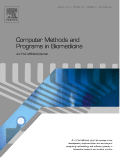
Computer Methods and Programs in Biomedicine
Exploring Cutting-Edge Methods in Biomedical Computing.Computer Methods and Programs in Biomedicine, published by ELSEVIER IRELAND LTD, is a leading journal at the intersection of computer science and biomedical research. With an impressive impact factor evidenced by its Q1 rankings in multiple categories—Computer Science Applications, Health Informatics, and Software—this journal ranks highly among peer publications, showcasing its significance in advancing interdisciplinary research. Covering a wide array of topics since its inception in 1985, it is particularly crucial for those invested in the innovation of computational methods applied to the biomedical field. The journal has established a strong reputation, with Scopus rankings placing it in the top percentiles across its relevant sectors, including the 14th position out of 138 in Health Informatics. Researchers, practitioners, and students looking to explore current trends, methodologies, and advancements in biomedical applications of computer science will find this journal an invaluable resource.
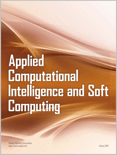
Applied Computational Intelligence and Soft Computing
Shaping the Future of AI and EngineeringApplied Computational Intelligence and Soft Computing, published by HINDAWI LTD, is a premier open access journal that has been disseminating critical research since 2009, focusing on the intersection of artificial intelligence and soft computing. With an impressive array of quartile rankings in 2023, including Q2 in Civil and Structural Engineering and Computational Mechanics, this journal has established itself as a significant contributor to the fields of computer science and engineering. Based in Egypt, it plays a vital role in advancing knowledge by providing researchers, professionals, and students with easy access to high-quality studies. The journal’s rigorous peer-review process ensures that only the most impactful research is highlighted, making it an essential resource for those looking to stay abreast of the latest innovations and methodological advancements in applied computational intelligence. Its Scopus rankings further affirm its influence and reputation within the academic community, exemplifying its commitment to facilitating collaboration and fostering intellectual discourse in various scientific domains.
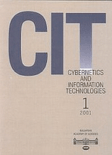
Cybernetics and Information Technologies
Advancing Knowledge at the Intersection of Cybernetics and ITCybernetics and Information Technologies is a pivotal academic journal, published by the Institute of Information and Communication Technologies at the Bulgarian Academy of Sciences. With its Open Access policy established since 2012, this journal facilitates wide dissemination of cutting-edge research across the field of computer science, particularly in the intersections of cybernetics and information technology. Indexed in Scopus, it holds a commendable position within the Q3 quartile for 2023, ranking #103 of 232 in the category of General Computer Science, placing it within the 55th percentile and attesting to its growing influence among peer publications. The journal not only aims to publish high-quality research but also seeks to foster a collaborative platform for academicians, practitioners, and students to advance the domain of computational technologies. With a focus on innovative methodologies and applications, Cybernetics and Information Technologies remains committed to addressing current challenges and exploring the future landscape of technology and information systems.
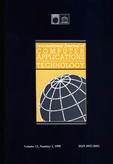
INTERNATIONAL JOURNAL OF COMPUTER APPLICATIONS IN TECHNOLOGY
Elevating discourse in computer science and technology applications.International Journal of Computer Applications in Technology is a reputable academic journal published by InderScience Enterprises Ltd, dedicated to advancing the field of computer applications across various domains including Computer Networks and Communications, Computer Science Applications, and more. With an ISSN of 0952-8091 and an E-ISSN of 1741-5047, this journal has been a credible source of research since its inception in 1976, transitioning into its current form in 1988. With its consistent rank in the Q3 quartile for several key engineering and computer science categories in 2023, it highlights the significance of the journal and its contributions to ongoing discourse in these fields. Researchers benefit from its wide-ranging scope, which encompasses both theoretical and practical applications of technology, making it an invaluable resource for both industry professionals and academic scholars. Although it currently does not provide open access, the journal remains committed to disseminating high-quality research that is essential for technological advancement and innovation.
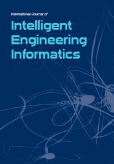
International Journal of Intelligent Engineering Informatics
Navigating the Frontiers of Computer Science and AI.International Journal of Intelligent Engineering Informatics, published by INDERSCIENCE ENTERPRISES LTD, stands at the forefront of research in the interdisciplinary domains of computer science, artificial intelligence, and human-computer interaction. With an ISSN of 1758-8715 and E-ISSN of 1758-8723, this journal serves as a vital resource for researchers and professionals seeking to explore the latest advancements in intelligent engineering and informatics techniques crucial for the evolution of modern technologies. Although currently not an open-access publication, it provides a necessary platform for disseminating high-quality research; its impact factor continues to grow, attracting a diverse readership interested in signal processing, software development, and computer vision. Covering innovative topics from 2022 to 2024, the journal is committed to fostering scholarly dialogue that paves the way for emerging trends and applications in the field, ensuring its relevance and significance in today's rapidly advancing technological landscape.

JOURNAL OF UNIVERSAL COMPUTER SCIENCE
Exploring the boundaries of theoretical and applied computing.JOURNAL OF UNIVERSAL COMPUTER SCIENCE, published by Graz University of Technology's Institute for Information Systems and Computer Media (IICM), stands as a pivotal resource in the field of computer science. Since its inception in 1994, this Open Access Journal has fostered a culture of knowledge sharing and collaboration, allowing readers from all corners of the globe to access cutting-edge research without barriers. With an impressive convergence of studies spanning from 1996 to 2024, the journal covers a breadth of topics within Computer Science, achieving a Q3 ranking in miscellaneous areas and a Q4 ranking in theoretical computer science as of 2023. It also holds significant standing in Scopus rankings, demonstrating its influence and reach among the scientific community. The journal is particularly valuable to researchers, professionals, and students eager to explore innovative ideas and techniques that push the boundaries of computer science. Based in Austria, the journal is dedicated to maintaining high standards of scholarly integrity while promoting interdisciplinary discourse and advancements in technology.
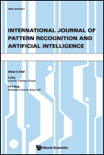
INTERNATIONAL JOURNAL OF PATTERN RECOGNITION AND ARTIFICIAL INTELLIGENCE
Elevating Knowledge in Computer Vision and Machine LearningINTERNATIONAL JOURNAL OF PATTERN RECOGNITION AND ARTIFICIAL INTELLIGENCE, published by WORLD SCIENTIFIC PUBL CO PTE LTD, is a prestigious academic journal established in 1995 that serves as a critical platform for disseminating innovative research in the rapidly evolving fields of artificial intelligence, pattern recognition, and computer vision. With a focus on advancing theoretical and applied methodologies, the journal aims to bridge the gap between research and practical applications, making it essential reading for researchers, professionals, and students alike. The journal holds strong rankings within its categories, placing it in the Q4 for Artificial Intelligence, Q3 for Computer Vision and Pattern Recognition, and Q3 for Software as of 2023. Despite its growing influence, it continues to provide a rich resource for studies at the intersection of machine learning and computer science. The INTERNATIONAL JOURNAL OF PATTERN RECOGNITION AND ARTIFICIAL INTELLIGENCE not only contributes to academic discourse but also acts as a catalyst for technological advancement, making a significant impact on the scientific community.